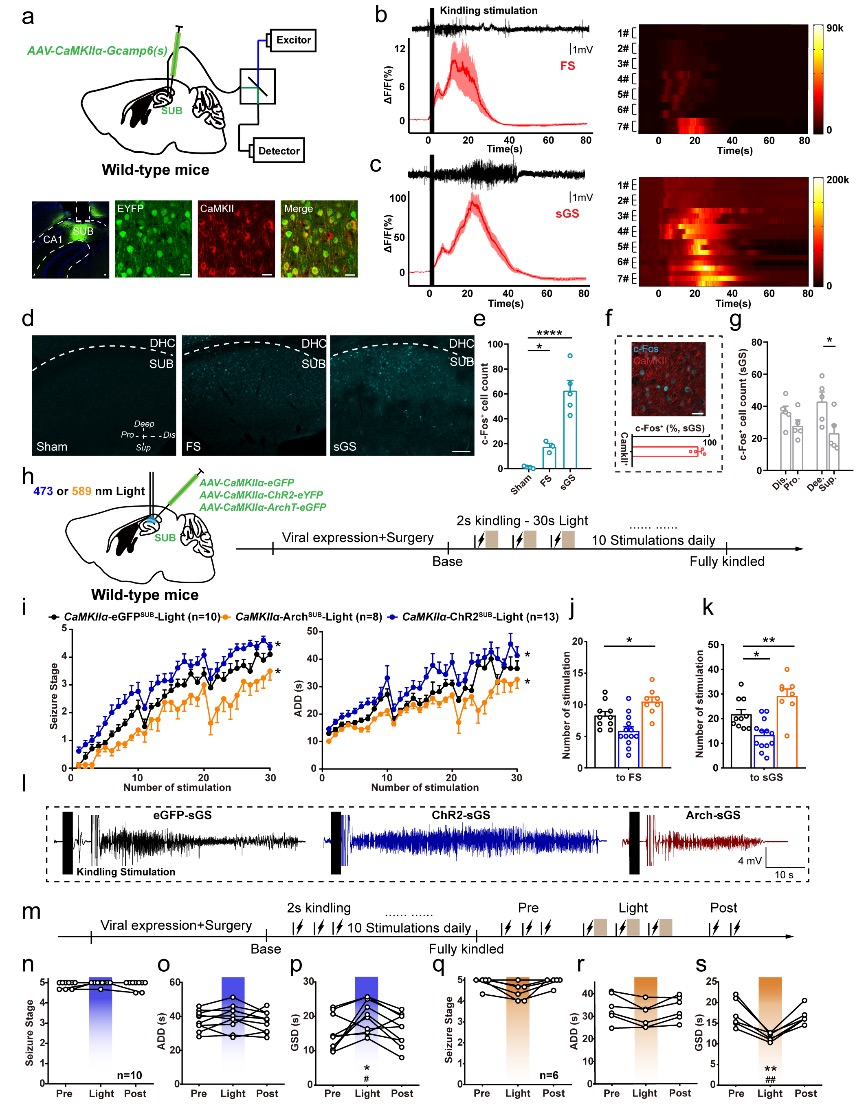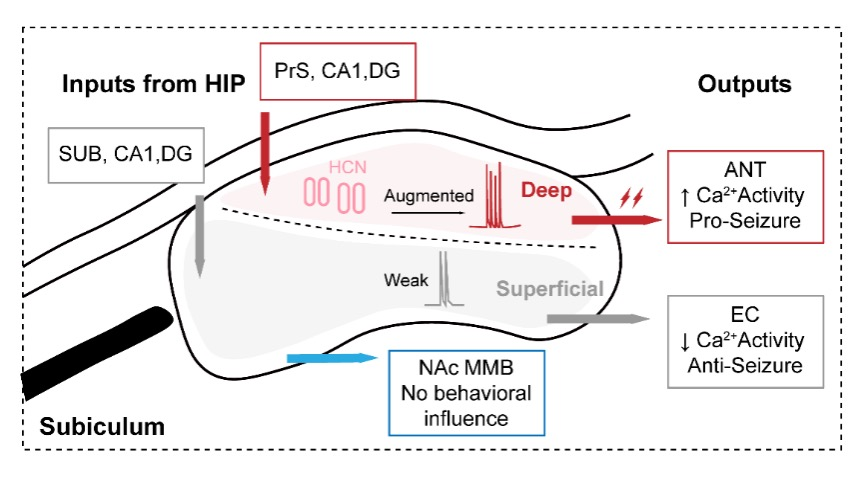Recently, the research team headed by Prof. Chen Zhong at ZCMU has made a breakthrough in the study of temporal lobe epilepsy (TLE) pathogenesis. The research result Discrete Subicular Circuits Control Generalization of Hippocampal Seizures was published in Nature Communications, revealing for the first time the heterogeneous role of excitatory glutamatergic neurons of the subicular in TLE. The first author is Fei Fan, a postdoctoral fellow at the School of Pharmaceutical Sciencesof ZCMU. The co-authors are Wang Xia, a master’s student at Zhejiang University, and Xu Cenglin, a researcher at the Academy of Chinese Medical Sciences of ZCMU. The co-corresponding authors are Prof. Chen Zhong, Researcher Wang Yi and Researcher Xu Cenglin. The research was funded by the Key Program and the Excellent Young Scientists Fund of the National Natural Science Foundation of China, and the Major Research Plan of the Zhejiang Provincial Natural Science Foundation.

Prof. Chen Zhong’s group has long focused on the subiculum, a key brain region, and proposed that it takes on the role of gate-control and regulatory mechanism in mediating TLE and its drug resistance (Neurobiol Dis, 2012; Neuron, 2017; Ann Neurol, 2019, 2021; Neurosci Bull 2020). Based on the gate-control theory of the subiculum, this study further investigates the neural circuit mechanisms and molecular targets of excitatory glutamatergic neurons in the subiculum in TLE. It provides a vital experimental basis for analyzing the mechanism of TLE and identifying precisely drug targets for intervention.

(Subicular pyramidal neurons control the generalization of hippocampal seizures)

Paper Link: https://www.nature.com/articles/s41467-022-32742-x
 International Relations Office
International Relations Office International Education College
International Education College








